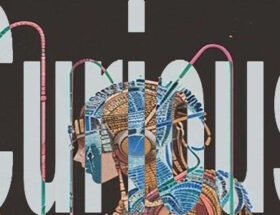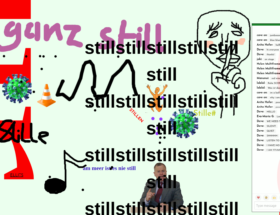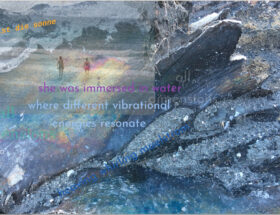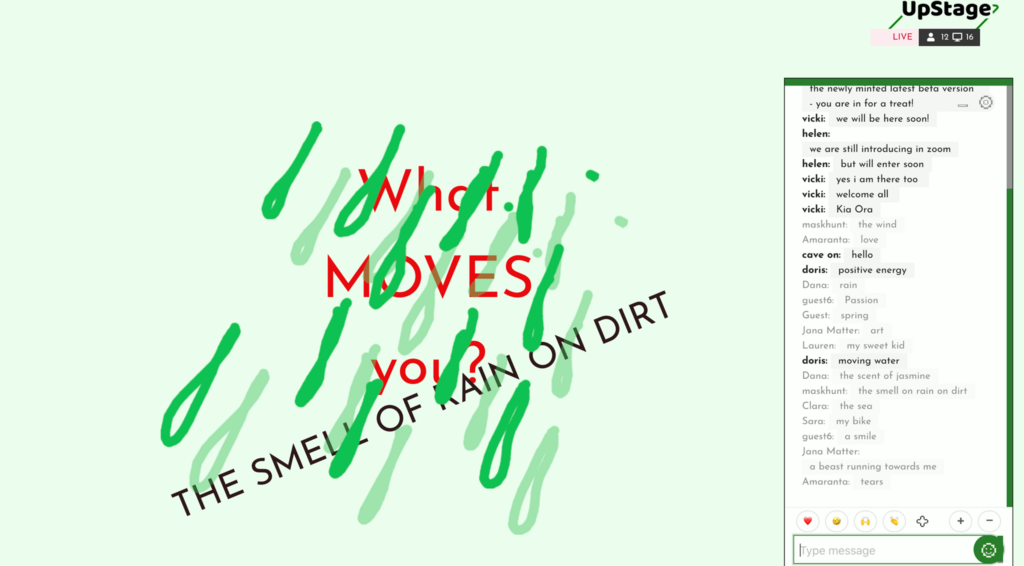
What moves you? What stops you?
With these questions, we began and ended the first of two work-in-progress presentations that we gave at the end of June, at the Bodies:On:Live festival. We invited the audience to respond, which they did very enthusiastically, and used the live text and drawing tools in UpStage to incorporate their answers into the performance. Between the two questions, artists in Graz, Malmö, Munich and Aotearoa New Zealand collaborated in a live improvisation using audio-visual materials that we have developed through our research and workshops.
What do you mourn for? What do you yearn for?
These questions framed the second of the two work-in-progress presentations. This time, the audience response was much quieter – perhaps these questions were too complex or difficult. We have come to these four questions through our research around human response to the climate emergency, ideas of hope and grief and loss as well as mobility and immobility. Mobility can mean moving towards our goals, but it can also mean leaving, fleeing, moving away from things that we might mourn for. Most of us are not very good at loss, at letting go, moving on – and yet we urgently need to be able to do this in order to cope with the crises we are facing.
These two presentations were a great opportunity to test out our ideas and materials on a supportive and curious audience. The feedback from the first was generally positive – one audience member said that it was “thrilling”, and another wrote that “the act of writing on the chat became very visceral at a certain stage … the agency given to us as an audience, together with the blurring of neat boundaries between who is a performer and who is a participant, was a never ending surprise”. In the second presentation we encountered a number of technical issues which made it a less satisfying experience for both performers and audience; some in the audience expressed confusion and frustration afterwards. But this is hugely helpful for us, both artists and the developers, as it helps us to understand what needs to be changed or improved.
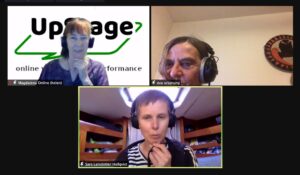 We gave a short introduction to Mobilise/Demobliise in Zoom before each presentation. This allowed us to contextualise the project, talk about our artistic collaboration and exchange, and explain that we are working with a beta version of the new platform so that the audience would not be alarmed if things didn’t always work as expected. Helping the audience to understand the technology is important – even those who have now been “zooming” for a year may still not be familiar with other platforms. At right, Helen Varley Jamieson, Eva Ursprung and Sara Larsdotter Hallqvist introduce the project.
We gave a short introduction to Mobilise/Demobliise in Zoom before each presentation. This allowed us to contextualise the project, talk about our artistic collaboration and exchange, and explain that we are working with a beta version of the new platform so that the audience would not be alarmed if things didn’t always work as expected. Helping the audience to understand the technology is important – even those who have now been “zooming” for a year may still not be familiar with other platforms. At right, Helen Varley Jamieson, Eva Ursprung and Sara Larsdotter Hallqvist introduce the project.
Now we will take some time over the European summer to digest and reflect on these presentations, before reconvening in late August to continue with devising and rehearsing the performance series for our October launch!

